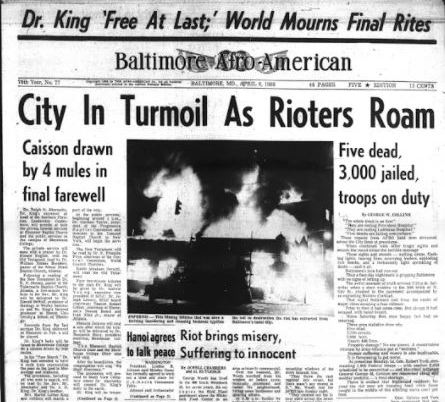“Lead us not into temptation” is the sixth petition of the Our Father. Πειρασμός (Peirasmòs), the Greek word used in this passage for ‘temptation.’, means a trial or test. Disciples petition God to be protected against the supreme test of ungodly powers. The trial is related to Jesus’s cup in Gethsemane, the same cup which his disciples would also taste (Mk 10: 35-45). The dark side of the interior of the cup is an abyss. It reveals the awful consequences of God’s judgment upon sinful humanity. In August, 1968, the weight of the evangelical Πειρασμός fell on many priests, including myself.
It was the year of the bad war, of complex innocence that sanctified the shedding of blood. English historian Paul Johnson dubs 1968 as the year of “America’s Suicide Attempt.” It included the Tet offensive in Vietnam with its tsunami-like effects in American life and politics, the assassination of Dr. Martin Luther King, Jr. in Memphis, Tennessee; the tumult in American cities on Palm Sunday weekend; and the June assassination of Senator Robert F. Kennedy in southern California. It was also the year in which Pope Paul VI issued his encyclical letter on transmitting human life, Humanae Vitae (HV). He met immediate, premeditated, and unprecedented opposition from some American theologians and pastors. By any measure 1968 was a bitter cup.
On the fortieth anniversary of Humanae Vitae, I have been asked to reflect on one event of that year, the doctrinal dissent among some priests and theologians in an American Archdiocese on the occasion of its publication. It is not an easy or welcome task. But since it may help some followers of Jesus to live what Pope Paul VI called a more “disciplined” life (HV 21), I will explore that event.
The summer of 1968 is a record of God’s hottest hour. The memories are not forgotten; they are painful. They remain vivid like a tornado in the plains of Colorado. They inhabit the whirlwind where God’s wrath dwells. In 1968 something terrible happened in the Church. Within the ministerial priesthood ruptures developed everywhere among friends which never healed. And the wounds continue to affect the whole Church. The dissent, together with the leaders’ manipulation of the anger they fomented, became a supreme test. It changed fundamental relationships within the Church. It was a Πειρασμός for many. (more...)


No comments:
Post a Comment